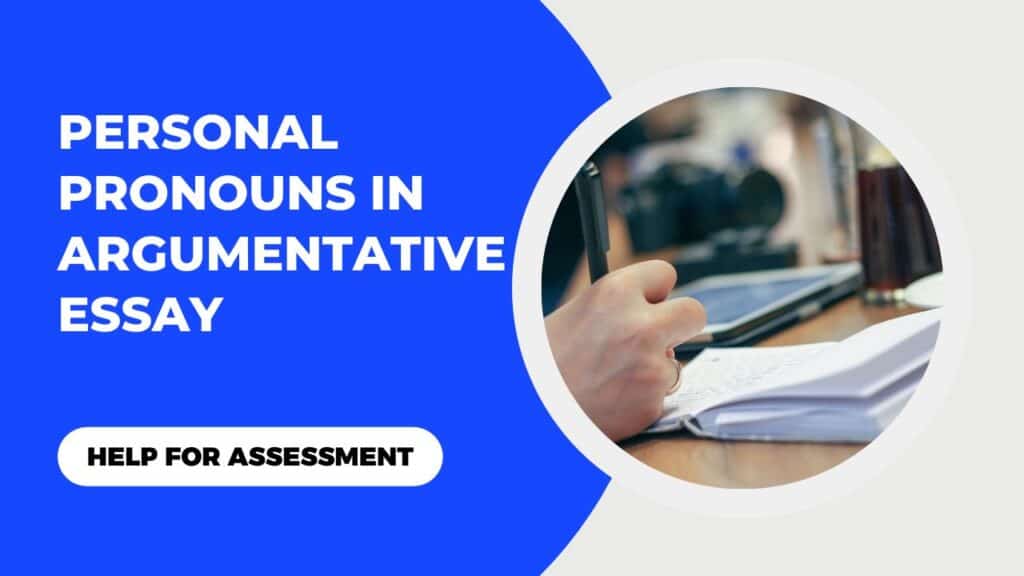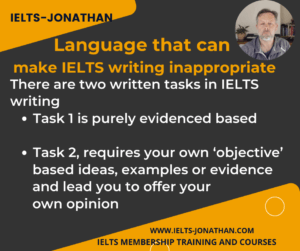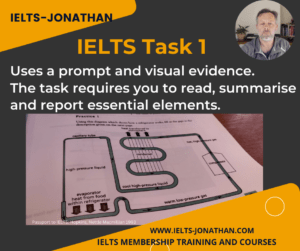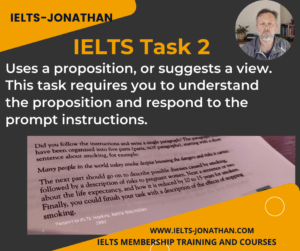
- Tips & Guides

How To Avoid Using “We,” “You,” And “I” in an Essay
- Posted on October 27, 2022 October 27, 2022
Maintaining a formal voice while writing academic essays and papers is essential to sound objective.
One of the main rules of academic or formal writing is to avoid first-person pronouns like “we,” “you,” and “I.” These words pull focus away from the topic and shift it to the speaker – the opposite of your goal.
While it may seem difficult at first, some tricks can help you avoid personal language and keep a professional tone.
Let’s learn how to avoid using “we” in an essay.
What Is a Personal Pronoun?
Pronouns are words used to refer to a noun indirectly. Examples include “he,” “his,” “her,” and “hers.” Any time you refer to a noun – whether a person, object, or animal – without using its name, you use a pronoun.
Personal pronouns are a type of pronoun. A personal pronoun is a pronoun you use whenever you directly refer to the subject of the sentence.
Take the following short paragraph as an example:
“Mr. Smith told the class yesterday to work on our essays. Mr. Smith also said that Mr. Smith lost Mr. Smith’s laptop in the lunchroom.”
The above sentence contains no pronouns at all. There are three places where you would insert a pronoun, but only two where you would put a personal pronoun. See the revised sentence below:
“Mr. Smith told the class yesterday to work on our essays. He also said that he lost his laptop in the lunchroom.”
“He” is a personal pronoun because we are talking directly about Mr. Smith. “His” is not a personal pronoun (it’s a possessive pronoun) because we are not speaking directly about Mr. Smith. Rather, we are talking about Mr. Smith’s laptop.
If later on you talk about Mr. Smith’s laptop, you may say:
“Mr. Smith found it in his car, not the lunchroom!”
In this case, “it” is a personal pronoun because in this point of view we are making a reference to the laptop directly and not as something owned by Mr. Smith.
Why Avoid Personal Pronouns in Essay Writing
We’re teaching you how to avoid using “I” in writing, but why is this necessary? Academic writing aims to focus on a clear topic, sound objective, and paint the writer as a source of authority. Word choice can significantly impact your success in achieving these goals.
Writing that uses personal pronouns can unintentionally shift the reader’s focus onto the writer, pulling their focus away from the topic at hand.
Personal pronouns may also make your work seem less objective.
One of the most challenging parts of essay writing is learning which words to avoid and how to avoid them. Fortunately, following a few simple tricks, you can master the English Language and write like a pro in no time.
Alternatives To Using Personal Pronouns
How to not use “I” in a paper? What are the alternatives? There are many ways to avoid the use of personal pronouns in academic writing. By shifting your word choice and sentence structure, you can keep the overall meaning of your sentences while re-shaping your tone.
Utilize Passive Voice
In conventional writing, students are taught to avoid the passive voice as much as possible, but it can be an excellent way to avoid first-person pronouns in academic writing.
You can use the passive voice to avoid using pronouns. Take this sentence, for example:
“ We used 150 ml of HCl for the experiment.”
Instead of using “we” and the active voice, you can use a passive voice without a pronoun. The sentence above becomes:
“150 ml of HCl were used for the experiment.”
Using the passive voice removes your team from the experiment and makes your work sound more objective.
Take a Third-Person Perspective
Another answer to “how to avoid using ‘we’ in an essay?” is the use of a third-person perspective. Changing the perspective is a good way to take first-person pronouns out of a sentence. A third-person point of view will not use any first-person pronouns because the information is not given from the speaker’s perspective.
A third-person sentence is spoken entirely about the subject where the speaker is outside of the sentence.
Take a look at the sentence below:
“In this article you will learn about formal writing.”
The perspective in that sentence is second person, and it uses the personal pronoun “you.” You can change this sentence to sound more objective by using third-person pronouns:
“In this article the reader will learn about formal writing.”
The use of a third-person point of view makes the second sentence sound more academic and confident. Second-person pronouns, like those used in the first sentence, sound less formal and objective.
Be Specific With Word Choice
You can avoid first-personal pronouns by choosing your words carefully. Often, you may find that you are inserting unnecessary nouns into your work.
Take the following sentence as an example:
“ My research shows the students did poorly on the test.”
In this case, the first-person pronoun ‘my’ can be entirely cut out from the sentence. It then becomes:
“Research shows the students did poorly on the test.”
The second sentence is more succinct and sounds more authoritative without changing the sentence structure.
You should also make sure to watch out for the improper use of adverbs and nouns. Being careful with your word choice regarding nouns, adverbs, verbs, and adjectives can help mitigate your use of personal pronouns.
“They bravely started the French revolution in 1789.”
While this sentence might be fine in a story about the revolution, an essay or academic piece should only focus on the facts. The world ‘bravely’ is a good indicator that you are inserting unnecessary personal pronouns into your work.
We can revise this sentence into:
“The French revolution started in 1789.”
Avoid adverbs (adjectives that describe verbs), and you will find that you avoid personal pronouns by default.
Closing Thoughts
In academic writing, It is crucial to sound objective and focus on the topic. Using personal pronouns pulls the focus away from the subject and makes writing sound subjective.
Hopefully, this article has helped you learn how to avoid using “we” in an essay.
When working on any formal writing assignment, avoid personal pronouns and informal language as much as possible.
While getting the hang of academic writing, you will likely make some mistakes, so revising is vital. Always double-check for personal pronouns, plagiarism , spelling mistakes, and correctly cited pieces.
You can prevent and correct mistakes using a plagiarism checker at any time, completely for free.
Quetext is a platform that helps you with all those tasks. Check out all resources that are available to you today.
Sign Up for Quetext Today!
Click below to find a pricing plan that fits your needs.
You May Also Like

Mastering Tone in Email Communication: A Guide to Professional Correspondence
- Posted on April 17, 2024

Mastering End-of-Sentence Punctuation: Periods, Question Marks, Exclamation Points, and More
- Posted on April 12, 2024

Mastering the Basics: Understanding the 4 Types of Sentences
- Posted on April 5, 2024

Can You Go to Jail for Plagiarism?
- Posted on March 22, 2024 March 22, 2024

Empowering Educators: How AI Detection Enhances Teachers’ Workload
- Posted on March 14, 2024

The Ethical Dimension | Navigating the Challenges of AI Detection in Education
- Posted on March 8, 2024

How to Write a Thesis Statement & Essay Outline
- Posted on February 29, 2024 February 29, 2024

The Crucial Role of Grammar and Spell Check in Student Assignments
- Posted on February 23, 2024 February 23, 2024
Input your search keywords and press Enter.

Should I Use “I”?
What this handout is about.
This handout is about determining when to use first person pronouns (“I”, “we,” “me,” “us,” “my,” and “our”) and personal experience in academic writing. “First person” and “personal experience” might sound like two ways of saying the same thing, but first person and personal experience can work in very different ways in your writing. You might choose to use “I” but not make any reference to your individual experiences in a particular paper. Or you might include a brief description of an experience that could help illustrate a point you’re making without ever using the word “I.” So whether or not you should use first person and personal experience are really two separate questions, both of which this handout addresses. It also offers some alternatives if you decide that either “I” or personal experience isn’t appropriate for your project. If you’ve decided that you do want to use one of them, this handout offers some ideas about how to do so effectively, because in many cases using one or the other might strengthen your writing.
Expectations about academic writing
Students often arrive at college with strict lists of writing rules in mind. Often these are rather strict lists of absolutes, including rules both stated and unstated:
- Each essay should have exactly five paragraphs.
- Don’t begin a sentence with “and” or “because.”
- Never include personal opinion.
- Never use “I” in essays.
We get these ideas primarily from teachers and other students. Often these ideas are derived from good advice but have been turned into unnecessarily strict rules in our minds. The problem is that overly strict rules about writing can prevent us, as writers, from being flexible enough to learn to adapt to the writing styles of different fields, ranging from the sciences to the humanities, and different kinds of writing projects, ranging from reviews to research.
So when it suits your purpose as a scholar, you will probably need to break some of the old rules, particularly the rules that prohibit first person pronouns and personal experience. Although there are certainly some instructors who think that these rules should be followed (so it is a good idea to ask directly), many instructors in all kinds of fields are finding reason to depart from these rules. Avoiding “I” can lead to awkwardness and vagueness, whereas using it in your writing can improve style and clarity. Using personal experience, when relevant, can add concreteness and even authority to writing that might otherwise be vague and impersonal. Because college writing situations vary widely in terms of stylistic conventions, tone, audience, and purpose, the trick is deciphering the conventions of your writing context and determining how your purpose and audience affect the way you write. The rest of this handout is devoted to strategies for figuring out when to use “I” and personal experience.
Effective uses of “I”:
In many cases, using the first person pronoun can improve your writing, by offering the following benefits:
- Assertiveness: In some cases you might wish to emphasize agency (who is doing what), as for instance if you need to point out how valuable your particular project is to an academic discipline or to claim your unique perspective or argument.
- Clarity: Because trying to avoid the first person can lead to awkward constructions and vagueness, using the first person can improve your writing style.
- Positioning yourself in the essay: In some projects, you need to explain how your research or ideas build on or depart from the work of others, in which case you’ll need to say “I,” “we,” “my,” or “our”; if you wish to claim some kind of authority on the topic, first person may help you do so.
Deciding whether “I” will help your style
Here is an example of how using the first person can make the writing clearer and more assertive:
Original example:
In studying American popular culture of the 1980s, the question of to what degree materialism was a major characteristic of the cultural milieu was explored.
Better example using first person:
In our study of American popular culture of the 1980s, we explored the degree to which materialism characterized the cultural milieu.
The original example sounds less emphatic and direct than the revised version; using “I” allows the writers to avoid the convoluted construction of the original and clarifies who did what.
Here is an example in which alternatives to the first person would be more appropriate:
As I observed the communication styles of first-year Carolina women, I noticed frequent use of non-verbal cues.
Better example:
A study of the communication styles of first-year Carolina women revealed frequent use of non-verbal cues.
In the original example, using the first person grounds the experience heavily in the writer’s subjective, individual perspective, but the writer’s purpose is to describe a phenomenon that is in fact objective or independent of that perspective. Avoiding the first person here creates the desired impression of an observed phenomenon that could be reproduced and also creates a stronger, clearer statement.
Here’s another example in which an alternative to first person works better:
As I was reading this study of medieval village life, I noticed that social class tended to be clearly defined.
This study of medieval village life reveals that social class tended to be clearly defined.
Although you may run across instructors who find the casual style of the original example refreshing, they are probably rare. The revised version sounds more academic and renders the statement more assertive and direct.
Here’s a final example:
I think that Aristotle’s ethical arguments are logical and readily applicable to contemporary cases, or at least it seems that way to me.
Better example
Aristotle’s ethical arguments are logical and readily applicable to contemporary cases.
In this example, there is no real need to announce that that statement about Aristotle is your thought; this is your paper, so readers will assume that the ideas in it are yours.
Determining whether to use “I” according to the conventions of the academic field
Which fields allow “I”?
The rules for this are changing, so it’s always best to ask your instructor if you’re not sure about using first person. But here are some general guidelines.
Sciences: In the past, scientific writers avoided the use of “I” because scientists often view the first person as interfering with the impression of objectivity and impersonality they are seeking to create. But conventions seem to be changing in some cases—for instance, when a scientific writer is describing a project she is working on or positioning that project within the existing research on the topic. Check with your science instructor to find out whether it’s o.k. to use “I” in their class.
Social Sciences: Some social scientists try to avoid “I” for the same reasons that other scientists do. But first person is becoming more commonly accepted, especially when the writer is describing their project or perspective.
Humanities: Ask your instructor whether you should use “I.” The purpose of writing in the humanities is generally to offer your own analysis of language, ideas, or a work of art. Writers in these fields tend to value assertiveness and to emphasize agency (who’s doing what), so the first person is often—but not always—appropriate. Sometimes writers use the first person in a less effective way, preceding an assertion with “I think,” “I feel,” or “I believe” as if such a phrase could replace a real defense of an argument. While your audience is generally interested in your perspective in the humanities fields, readers do expect you to fully argue, support, and illustrate your assertions. Personal belief or opinion is generally not sufficient in itself; you will need evidence of some kind to convince your reader.
Other writing situations: If you’re writing a speech, use of the first and even the second person (“you”) is generally encouraged because these personal pronouns can create a desirable sense of connection between speaker and listener and can contribute to the sense that the speaker is sincere and involved in the issue. If you’re writing a resume, though, avoid the first person; describe your experience, education, and skills without using a personal pronoun (for example, under “Experience” you might write “Volunteered as a peer counselor”).
A note on the second person “you”:
In situations where your intention is to sound conversational and friendly because it suits your purpose, as it does in this handout intended to offer helpful advice, or in a letter or speech, “you” might help to create just the sense of familiarity you’re after. But in most academic writing situations, “you” sounds overly conversational, as for instance in a claim like “when you read the poem ‘The Wasteland,’ you feel a sense of emptiness.” In this case, the “you” sounds overly conversational. The statement would read better as “The poem ‘The Wasteland’ creates a sense of emptiness.” Academic writers almost always use alternatives to the second person pronoun, such as “one,” “the reader,” or “people.”
Personal experience in academic writing
The question of whether personal experience has a place in academic writing depends on context and purpose. In papers that seek to analyze an objective principle or data as in science papers, or in papers for a field that explicitly tries to minimize the effect of the researcher’s presence such as anthropology, personal experience would probably distract from your purpose. But sometimes you might need to explicitly situate your position as researcher in relation to your subject of study. Or if your purpose is to present your individual response to a work of art, to offer examples of how an idea or theory might apply to life, or to use experience as evidence or a demonstration of an abstract principle, personal experience might have a legitimate role to play in your academic writing. Using personal experience effectively usually means keeping it in the service of your argument, as opposed to letting it become an end in itself or take over the paper.
It’s also usually best to keep your real or hypothetical stories brief, but they can strengthen arguments in need of concrete illustrations or even just a little more vitality.
Here are some examples of effective ways to incorporate personal experience in academic writing:
- Anecdotes: In some cases, brief examples of experiences you’ve had or witnessed may serve as useful illustrations of a point you’re arguing or a theory you’re evaluating. For instance, in philosophical arguments, writers often use a real or hypothetical situation to illustrate abstract ideas and principles.
- References to your own experience can explain your interest in an issue or even help to establish your authority on a topic.
- Some specific writing situations, such as application essays, explicitly call for discussion of personal experience.
Here are some suggestions about including personal experience in writing for specific fields:
Philosophy: In philosophical writing, your purpose is generally to reconstruct or evaluate an existing argument, and/or to generate your own. Sometimes, doing this effectively may involve offering a hypothetical example or an illustration. In these cases, you might find that inventing or recounting a scenario that you’ve experienced or witnessed could help demonstrate your point. Personal experience can play a very useful role in your philosophy papers, as long as you always explain to the reader how the experience is related to your argument. (See our handout on writing in philosophy for more information.)
Religion: Religion courses might seem like a place where personal experience would be welcomed. But most religion courses take a cultural, historical, or textual approach, and these generally require objectivity and impersonality. So although you probably have very strong beliefs or powerful experiences in this area that might motivate your interest in the field, they shouldn’t supplant scholarly analysis. But ask your instructor, as it is possible that they are interested in your personal experiences with religion, especially in less formal assignments such as response papers. (See our handout on writing in religious studies for more information.)
Literature, Music, Fine Arts, and Film: Writing projects in these fields can sometimes benefit from the inclusion of personal experience, as long as it isn’t tangential. For instance, your annoyance over your roommate’s habits might not add much to an analysis of “Citizen Kane.” However, if you’re writing about Ridley Scott’s treatment of relationships between women in the movie “Thelma and Louise,” some reference your own observations about these relationships might be relevant if it adds to your analysis of the film. Personal experience can be especially appropriate in a response paper, or in any kind of assignment that asks about your experience of the work as a reader or viewer. Some film and literature scholars are interested in how a film or literary text is received by different audiences, so a discussion of how a particular viewer or reader experiences or identifies with the piece would probably be appropriate. (See our handouts on writing about fiction , art history , and drama for more information.)
Women’s Studies: Women’s Studies classes tend to be taught from a feminist perspective, a perspective which is generally interested in the ways in which individuals experience gender roles. So personal experience can often serve as evidence for your analytical and argumentative papers in this field. This field is also one in which you might be asked to keep a journal, a kind of writing that requires you to apply theoretical concepts to your experiences.
History: If you’re analyzing a historical period or issue, personal experience is less likely to advance your purpose of objectivity. However, some kinds of historical scholarship do involve the exploration of personal histories. So although you might not be referencing your own experience, you might very well be discussing other people’s experiences as illustrations of their historical contexts. (See our handout on writing in history for more information.)
Sciences: Because the primary purpose is to study data and fixed principles in an objective way, personal experience is less likely to have a place in this kind of writing. Often, as in a lab report, your goal is to describe observations in such a way that a reader could duplicate the experiment, so the less extra information, the better. Of course, if you’re working in the social sciences, case studies—accounts of the personal experiences of other people—are a crucial part of your scholarship. (See our handout on writing in the sciences for more information.)
You may reproduce it for non-commercial use if you use the entire handout and attribute the source: The Writing Center, University of North Carolina at Chapel Hill
Make a Gift
Table of Contents
Ai, ethics & human agency, collaboration, information literacy, writing process, using first person in an academic essay: when is it okay.
- CC BY-NC-ND 4.0 by Jenna Pack Sheffield

Related Concepts: Academic Writing – How to Write for the Academic Community ; First-Person Point of View ; Rhetorical Analysis; Rhetorical Stance ; The First Person ; Voice
In order to determine whether or not you can speak or write from the first-person point of view, you need to engage in rhetorical analysis. You need to question whether your audience values and accepts the first person as a legitimate rhetorical stance. Source:Many times, high school students are told not to use first person (“I,” “we,” “my,” “us,” and so forth) in their essays. As a college student, you should realize that this is a rule that can and should be broken—at the right time, of course.
By now, you’ve probably written a personal essay, memoir, or narrative that used first person. After all, how could you write a personal essay about yourself, for instance, without using the dreaded “I” word?
However, academic essays differ from personal essays; they are typically researched and use a formal tone . Because of these differences, when students write an academic essay, they quickly shy away from first person because of what they have been told in high school or because they believe that first person feels too informal for an intellectual, researched text. While first person can definitely be overused in academic essays (which is likely why your teachers tell you not to use it), there are moments in a paper when it is not only appropriate, but also more effective and/or persuasive to use first person. The following are a few instances in which it is appropriate to use first person in an academic essay:
- Including a personal anecdote: You have more than likely been told that you need a strong “hook” to draw your readers in during an introduction. Sometimes, the best hook is a personal anecdote, or a short amusing story about yourself. In this situation, it would seem unnatural not to use first-person pronouns such as “I” and “myself.” Your readers will appreciate the personal touch and will want to keep reading! (For more information about incorporating personal anecdotes into your writing, see “ Employing Narrative in an Essay .”)
- Establishing your credibility ( ethos ): Ethos is a term stemming back to Ancient Greece that essentially means “character” in the sense of trustworthiness or credibility. A writer can establish her ethos by convincing the reader that she is trustworthy source. Oftentimes, the best way to do that is to get personal—tell the reader a little bit about yourself. (For more information about ethos, see “ Ethos .”)For instance, let’s say you are writing an essay arguing that dance is a sport. Using the occasional personal pronoun to let your audience know that you, in fact, are a classically trained dancer—and have the muscles and scars to prove it—goes a long way in establishing your credibility and proving your argument. And this use of first person will not distract or annoy your readers because it is purposeful.
- Clarifying passive constructions : Often, when writers try to avoid using first person in essays, they end up creating confusing, passive sentences . For instance, let’s say I am writing an essay about different word processing technologies, and I want to make the point that I am using Microsoft Word to write this essay. If I tried to avoid first-person pronouns, my sentence might read: “Right now, this essay is being written in Microsoft Word.” While this sentence is not wrong, it is what we call passive—the subject of the sentence is being acted upon because there is no one performing the action. To most people, this sentence sounds better: “Right now, I am writing this essay in Microsoft Word.” Do you see the difference? In this case, using first person makes your writing clearer.
- Stating your position in relation to others: Sometimes, especially in an argumentative essay, it is necessary to state your opinion on the topic . Readers want to know where you stand, and it is sometimes helpful to assert yourself by putting your own opinions into the essay. You can imagine the passive sentences (see above) that might occur if you try to state your argument without using the word “I.” The key here is to use first person sparingly. Use personal pronouns enough to get your point across clearly without inundating your readers with this language.
Now, the above list is certainly not exhaustive. The best thing to do is to use your good judgment, and you can always check with your instructor if you are unsure of his or her perspective on the issue. Ultimately, if you feel that using first person has a purpose or will have a strategic effect on your audience, then it is probably fine to use first-person pronouns. Just be sure not to overuse this language, at the risk of sounding narcissistic, self-centered, or unaware of others’ opinions on a topic.
Recommended Readings:
- A Synthesis of Professor Perspectives on Using First and Third Person in Academic Writing
- Finding the Bunny: How to Make a Personal Connection to Your Writing
- First-Person Point of View

Brevity – Say More with Less

Clarity (in Speech and Writing)

Coherence – How to Achieve Coherence in Writing

Flow – How to Create Flow in Writing

Inclusivity – Inclusive Language

The Elements of Style – The DNA of Powerful Writing

Suggested Edits
- Please select the purpose of your message. * - Corrections, Typos, or Edits Technical Support/Problems using the site Advertising with Writing Commons Copyright Issues I am contacting you about something else
- Your full name
- Your email address *
- Page URL needing edits *
- Phone This field is for validation purposes and should be left unchanged.
Featured Articles

Academic Writing – How to Write for the Academic Community

Professional Writing – How to Write for the Professional World

Authority – How to Establish Credibility in Speech & Writing

- Customer Reviews
- Extended Essays
- IB Internal Assessment
- Theory of Knowledge
- Literature Review
- Dissertations
- Essay Writing
- Research Writing
- Assignment Help
- Capstone Projects
- College Application
- Online Class
Can You Use Personal Pronoun in an Argumentative Essay?
by Antony W
February 16, 2023

Back in high school, your teacher told you not to use first person in writing your essay. But things change at college level and students break this rule more often than they can count – in the case where it’s absolutely necessary. The question is can you use personal pronoun in an argumentative essay?
You can use personal pronouns in an argumentative essay to state your opinion on an issue. Your audience wants to know where you stand, and it’s difficult to express your position without adding personalization. However, use personal pronouns sparingly so you don’t inundate your readers.
By using personal pronouns to express your thoughts on an issue based on the research you’ve conducted, you make it clear to your readers that you can be a trustworthy source on the issue in question.
Can You Use Personal Pronouns in an Argumentative Essay?
The use of personal pronouns in an argumentative essay is a concern that many students have. So it’s important that we address the issue by giving you a concrete answer that you can use to tackle the assignment.
Here’s the thing:
You’ve probably written a college admissions essay , memoir, or personal narrative essay. All these require the use of first person without which it’s would be difficult to express yourself.
Argumentative essays are different. They require in-depth research and a more formal tone, which leaves very little room for personal pronouns. Many students even shy away from using personal pronouns because they’re afraid their essays may sound too informal for an intellectual professor.
However, there are moments when you just can’t avoid using first personal pronouns in an argumentative essay. In fact, your essay might end up incomplete without the use of such pronouns.
Below are instances where you have to use a personal pronoun when writing your argumentative essay:
Clarify Your Position
It’s hard to state your position in an argument without actually using a personal pronoun.
If you remember what we said earlier, your audience not only wants to know your position on an issue but also want to know what you hold that stance in the first place.
You will have to put your personal opinion into the essay and there’s no better way to do that than to use personal pronouns.
While stating, demonstrating, and clarifying your position requires the use of personal pronouns, it’s important to use these sparingly. In other words, use what’s enough to communicate your point without overwhelming your audience with personalization.
Hook Your Reader
The introduction of your arg u mentative essay has to be good enough to draw in the attention of your reader.
To do that, you have to write a strong hook before you state the thesis of your argument .
Sometimes the best way to grab the attention of your audience is to share a personal anecdote, in which case you will need to use the first person pronoun “I” in the essay.
Here, you’re creating a personal touch that readers can’t help but appreciate. That appreciation further translates into the interest of reading the essay further to discover how you unpack your evidence to defend your stance.
Establish Your Credibility
Ethos is a common term in academic writing. In the Ancient Greece, intellects used the term to refer to character in the sense of credibility.
In argumentative essay writing, the term means the ability to establish trustworthiness with the information you provide you provide to your audience.
To establish your ethos, you have to convince your audience that you can be their trustworthy source of information. Quite too often, the best way to do that is by getting personal.
In this case you’ll have to tell your readers about yourself in a way that shows your audience that either you’re an authority in your topic or you have a personal experience in an issue.
To Avoid Passive Constructions
Another reason to use personal pronouns in an argumentative essay is to avoid passive sentences in your work.
A passive sentence is an instance where there’s an action going on but we don’t know who does the action. This can cause a lot of confusion and it’s best to avoid completely.
In some stances, using the first person pronoun is the best way to avoid passive construction and make your ideas clear.
Frequently Asked Questions
Can you write your personal opinion in an argumentative essay.
Yes, you’re allowed to write your personal opinion in an argumentative essay. Remember, you’re taking a stance and defending your position using logic and evidence. It’s hard to do that without expressing your personal opinion in the essay.
What’s the difference between an argumentative and an opinion essay?
In an argumentative essay, you take one side of an issue and support it using evidence to get readers to accept your side of the argument. The essay requires you to recognize counterclaim from a logical standpoint and then use strong reason and evidence to refute such claims.
An opinion essay, on the other hand, is an assignment that requires you to give your thoughts about a particular topic. This essay doesn’t require you to take any position. Just state your opinion on the topic and let readers decide what to choose.
Where can one find help with argumentative essay writing?
While there are many academic writing platforms out there, Help for Assessment is the best go-to platform for professional help. Check out our argumentative essay help and let us know how we can help you.
What is the best way to write an argumentative essay?
The best way to write an argumentative essay is to:
- Choose the best argumentative essay topic
- Do research
- Learn about the structure of an argumentative essay
- Start your essay with a hook
- Avoid questions in your argument
- Write your first draft early
- Look into the right way to revise your argumentative essay
- Submit your work before or when it’s due
Also, we’ve put together a comprehensive guide that you can read if you want to learn how to write an argumentative essay. Go read that guide if you’re just getting started.
About the author
Antony W is a professional writer and coach at Help for Assessment. He spends countless hours every day researching and writing great content filled with expert advice on how to write engaging essays, research papers, and assignments.

- Walden University
- Faculty Portal
Scholarly Voice: First-Person Point of View
First-person point of view.
Since 2007, Walden academic leadership has endorsed the APA manual guidance on appropriate use of the first-person singular pronoun "I," allowing the use of this pronoun in all Walden academic writing except doctoral capstone abstracts, which should not contain first person pronouns.
In addition to the pointers below, APA 7, Section 4.16 provides information on the appropriate use of first person in scholarly writing.
Inappropriate Uses: I feel that eating white bread causes cancer. The author feels that eating white bread causes cancer. I found several sources (Marks, 2011; Isaac, 2006; Stuart, in press) that showed a link between white bread consumption and cancer. Appropriate Use: I surveyed 2,900 adults who consumed white bread regularly. In this chapter, I present a literature review on research about how seasonal light changes affect depression.
Confusing Sentence: The researcher found that the authors had been accurate in their study of helium, which the researcher had hypothesized from the beginning of their project. Revision: I found that Johnson et al. (2011) had been accurate in their study of helium, which I had hypothesized since I began my project.
Passive voice: The surveys were distributed and the results were compiled after they were collected. Revision: I distributed the surveys, and then I collected and compiled the results.
Appropriate use of first person we and our : Two other nurses and I worked together to create a qualitative survey to measure patient satisfaction. Upon completion, we presented the results to our supervisor.
Make assumptions about your readers by putting them in a group to which they may not belong by using first person plural pronouns. Inappropriate use of first person "we" and "our":
- We can stop obesity in our society by changing our lifestyles.
- We need to help our patients recover faster.
In the first sentence above, the readers would not necessarily know who "we" are, and using a phrase such as "our society " can immediately exclude readers from outside your social group. In the second sentence, the author assumes that the reader is a nurse or medical professional, which may not be the case, and the sentence expresses the opinion of the author.
To write with more precision and clarity, hallmarks of scholarly writing, revise these sentences without the use of "we" and "our."
- Moderate activity can reduce the risk of obesity (Hu et al., 2003).
- Staff members in the health care industry can help improve the recovery rate for patients (Matthews, 2013).
Pronouns Video
- APA Formatting & Style: Pronouns (video transcript)
Related Resources
Didn't find what you need? Email us at [email protected] .
- Previous Page: Point of View
- Next Page: Second-Person Point of View
- Office of Student Disability Services
Walden Resources
Departments.
- Academic Residencies
- Academic Skills
- Career Planning and Development
- Customer Care Team
- Field Experience
- Military Services
- Student Success Advising
- Writing Skills
Centers and Offices
- Center for Social Change
- Office of Academic Support and Instructional Services
- Office of Degree Acceleration
- Office of Research and Doctoral Services
- Office of Student Affairs
Student Resources
- Doctoral Writing Assessment
- Form & Style Review
- Quick Answers
- ScholarWorks
- SKIL Courses and Workshops
- Walden Bookstore
- Walden Catalog & Student Handbook
- Student Safety/Title IX
- Legal & Consumer Information
- Website Terms and Conditions
- Cookie Policy
- Accessibility
- Accreditation
- State Authorization
- Net Price Calculator
- Contact Walden
Walden University is a member of Adtalem Global Education, Inc. www.adtalem.com Walden University is certified to operate by SCHEV © 2024 Walden University LLC. All rights reserved.
Using “I” in Academic Writing
Traditionally, some fields have frowned on the use of the first-person singular in an academic essay and others have encouraged that use, and both the frowning and the encouraging persist today—and there are good reasons for both positions (see “Should I”).
I recommend that you not look on the question of using “I” in an academic paper as a matter of a rule to follow, as part of a political agenda (see webb), or even as the need to create a strategy to avoid falling into Scylla-or-Charybdis error. Let the first-person singular be, instead, a tool that you take out when you think it’s needed and that you leave in the toolbox when you think it’s not.
Examples of When “I” May Be Needed
- You are narrating how you made a discovery, and the process of your discovering is important or at the very least entertaining.
- You are describing how you teach something and how your students have responded or respond.
- You disagree with another scholar and want to stress that you are not waving the banner of absolute truth.
- You need “I” for rhetorical effect, to be clear, simple, or direct.
Examples of When “I” Should Be Given a Rest
- It’s off-putting to readers, generally, when “I” appears too often. You may not feel one bit modest, but remember the advice of Benjamin Franklin, still excellent, on the wisdom of preserving the semblance of modesty when your purpose is to convince others.
- You are the author of your paper, so if an opinion is expressed in it, it is usually clear that this opinion is yours. You don’t have to add a phrase like, “I believe” or “it seems to me.”
Works Cited
Franklin, Benjamin. The Autobiography of Benjamin Franklin . Project Gutenberg , 28 Dec. 2006, www.gutenberg.org/app/uploads/sites/3/20203/20203-h/20203-h.htm#I.
“Should I Use “I”?” The Writing Center at UNC—Chapel Hill , writingcenter.unc.edu/handouts/should-i-use-i/.
webb, Christine. “The Use of the First Person in Academic Writing: Objectivity, Language, and Gatekeeping.” ResearchGate , July 1992, doi: 10.1111/j.1365-2648.1992.tb01974.x.
J.S.Beniwal 05 August 2017 AT 09:08 AM
I have borrowed MLA only yesterday, did my MAEnglish in May 2017.MLA is of immense help for scholars.An overview of the book really enlightened me.I should have read it at bachelor's degree level.
Your e-mail address will not be published
Dr. Raymond Harter 25 September 2017 AT 02:09 PM
I discourage the use of "I" in essays for undergraduates to reinforce a conversational tone and to "self-recognize" the writer as an authority or at least a thorough researcher. Writing a play is different than an essay with a purpose.
Osayimwense Osa 22 March 2023 AT 05:03 PM
When a student or writer is strongly and passionately interested in his or her stance and argument to persuade his or her audience, the use of personal pronoun srenghtens his or her passion for the subject. This passion should be clear in his/her expression. However, I encourage the use of the first-person, I, sparingly -- only when and where absolutely necessary.
Eleanor 25 March 2023 AT 04:03 PM
I once had a student use the word "eye" when writing about how to use pronouns. Her peers did not catch it. I made comments, but I think she never understood what eye was saying!
Join the Conversation
We invite you to comment on this post and exchange ideas with other site visitors. Comments are moderated and subject to terms of service.
If you have a question for the MLA's editors, submit it to Ask the MLA!
Purdue Online Writing Lab Purdue OWL® College of Liberal Arts
Appropriate Pronoun Usage

Welcome to the Purdue OWL
This page is brought to you by the OWL at Purdue University. When printing this page, you must include the entire legal notice.
Copyright ©1995-2018 by The Writing Lab & The OWL at Purdue and Purdue University. All rights reserved. This material may not be published, reproduced, broadcast, rewritten, or redistributed without permission. Use of this site constitutes acceptance of our terms and conditions of fair use.
This handout will cover some of the major issues with appropriate language use: levels of language formality, deceitful language and euphemisms, slang and idiomatic expressions; using group-specific jargon; and biased/stereotypical language.
Because English has no generic singular—or common-sex—pronoun, we have used HE, HIS, and HIM in such expressions as "the student needs HIS pencil." When we constantly personify "the judge," "the critic," "the executive," "the author," and so forth, as male by using the pronoun HE, we are subtly conditioning ourselves against the idea of a female judge, critic, executive, or author. There are several alternative approaches for ending the exclusion of women that results from the pervasive use of masculine pronouns.
Recast into the plural
- Original: Give each student his paper as soon as he is finished.
- Alternative: Give students their papers as soon as they are finished.
Reword to eliminate gender problems.
- Original: The average student is worried about his grade.
- Alternative: The average student is worried about grades.
Replace the masculine pronoun with ONE, YOU, or (sparingly) HE OR SHE, as appropriate.
- Original: If the student was satisfied with his performance on the pretest, he took the post-test.
- Alternative: A student who was satisfied with her or his performance on the pretest took the post-test.
Alternate male and female examples and expressions. (Be careful not to confuse the reader.)
- Original: Let each student participate. Has he had a chance to talk? Could he feel left out?
- Alternative: Let each student participate. Has she had a chance to talk? Could he feel left out?
Indefinite Pronouns
Using the masculine pronouns to refer to an indefinite pronoun ( everybody, everyone, anybody, anyone ) also has the effect of excluding women. In all but strictly formal uses, plural pronouns have become acceptable substitutes for the masculine singular.
- Original: Anyone who wants to go to the game should bring his money tomorrow.
- Alternative: Anyone who wants to go to the game should bring their money tomorrow.
An alternative to this is merely changing the sentence. English is very flexible, so there is little reason to "write yourself into a corner":
- Original: Anyone who wants to go to the game should bring his money.
- Alternative: People who want to go to the game should bring their money.
- Affiliate Program

- UNITED STATES
- 台灣 (TAIWAN)
- TÜRKIYE (TURKEY)
- Academic Editing Services
- - Research Paper
- - Journal Manuscript
- - Dissertation
- - College & University Assignments
- Admissions Editing Services
- - Application Essay
- - Personal Statement
- - Recommendation Letter
- - Cover Letter
- - CV/Resume
- Business Editing Services
- - Business Documents
- - Report & Brochure
- - Website & Blog
- Writer Editing Services
- - Script & Screenplay
- Our Editors
- Client Reviews
- Editing & Proofreading Prices
- Wordvice Points
- Partner Discount
- Plagiarism Checker
- APA Citation Generator
- MLA Citation Generator
- Chicago Citation Generator
- Vancouver Citation Generator
- - APA Style
- - MLA Style
- - Chicago Style
- - Vancouver Style
- Writing & Editing Guide
- Academic Resources
- Admissions Resources
Can You Use First-Person Pronouns (I/we) in a Research Paper?
Research writers frequently wonder whether the first person can be used in academic and scientific writing. In truth, for generations, we’ve been discouraged from using “I” and “we” in academic writing simply due to old habits. That’s right—there’s no reason why you can’t use these words! In fact, the academic community used first-person pronouns until the 1920s, when the third person and passive-voice constructions (that is, “boring” writing) were adopted–prominently expressed, for example, in Strunk and White’s classic writing manual “Elements of Style” first published in 1918, that advised writers to place themselves “in the background” and not draw attention to themselves.
In recent decades, however, changing attitudes about the first person in academic writing has led to a paradigm shift, and we have, however, we’ve shifted back to producing active and engaging prose that incorporates the first person.
Can You Use “I” in a Research Paper?
However, “I” and “we” still have some generally accepted pronoun rules writers should follow. For example, the first person is more likely used in the abstract , Introduction section , Discussion section , and Conclusion section of an academic paper while the third person and passive constructions are found in the Methods section and Results section .
In this article, we discuss when you should avoid personal pronouns and when they may enhance your writing.
It’s Okay to Use First-Person Pronouns to:
- clarify meaning by eliminating passive voice constructions;
- establish authority and credibility (e.g., assert ethos, the Aristotelian rhetorical term referring to the personal character);
- express interest in a subject matter (typically found in rapid correspondence);
- establish personal connections with readers, particularly regarding anecdotal or hypothetical situations (common in philosophy, religion, and similar fields, particularly to explore how certain concepts might impact personal life. Additionally, artistic disciplines may also encourage personal perspectives more than other subjects);
- to emphasize or distinguish your perspective while discussing existing literature; and
- to create a conversational tone (rare in academic writing).

The First Person Should Be Avoided When:
- doing so would remove objectivity and give the impression that results or observations are unique to your perspective;
- you wish to maintain an objective tone that would suggest your study minimized biases as best as possible; and
- expressing your thoughts generally (phrases like “I think” are unnecessary because any statement that isn’t cited should be yours).
Usage Examples
The following examples compare the impact of using and avoiding first-person pronouns.
Example 1 (First Person Preferred):
To understand the effects of global warming on coastal regions, changes in sea levels, storm surge occurrences and precipitation amounts were examined .
[Note: When a long phrase acts as the subject of a passive-voice construction, the sentence becomes difficult to digest. Additionally, since the author(s) conducted the research, it would be clearer to specifically mention them when discussing the focus of a project.]
We examined changes in sea levels, storm surge occurrences, and precipitation amounts to understand how global warming impacts coastal regions.
[Note: When describing the focus of a research project, authors often replace “we” with phrases such as “this study” or “this paper.” “We,” however, is acceptable in this context, including for scientific disciplines. In fact, papers published the vast majority of scientific journals these days use “we” to establish an active voice. Be careful when using “this study” or “this paper” with verbs that clearly couldn’t have performed the action. For example, “we attempt to demonstrate” works, but “the study attempts to demonstrate” does not; the study is not a person.]
Example 2 (First Person Discouraged):
From the various data points we have received , we observed that higher frequencies of runoffs from heavy rainfall have occurred in coastal regions where temperatures have increased by at least 0.9°C.
[Note: Introducing personal pronouns when discussing results raises questions regarding the reproducibility of a study. However, mathematics fields generally tolerate phrases such as “in X example, we see…”]
Coastal regions with temperature increases averaging more than 0.9°C experienced higher frequencies of runoffs from heavy rainfall.
[Note: We removed the passive voice and maintained objectivity and assertiveness by specifically identifying the cause-and-effect elements as the actor and recipient of the main action verb. Additionally, in this version, the results appear independent of any person’s perspective.]
Example 3 (First Person Preferred):
In contrast to the study by Jones et al. (2001), which suggests that milk consumption is safe for adults, the Miller study (2005) revealed the potential hazards of ingesting milk. The authors confirm this latter finding.
[Note: “Authors” in the last sentence above is unclear. Does the term refer to Jones et al., Miller, or the authors of the current paper?]
In contrast to the study by Jones et al. (2001), which suggests that milk consumption is safe for adults, the Miller study (2005) revealed the potential hazards of ingesting milk. We confirm this latter finding.
[Note: By using “we,” this sentence clarifies the actor and emphasizes the significance of the recent findings reported in this paper. Indeed, “I” and “we” are acceptable in most scientific fields to compare an author’s works with other researchers’ publications. The APA encourages using personal pronouns for this context. The social sciences broaden this scope to allow discussion of personal perspectives, irrespective of comparisons to other literature.]
Other Tips about Using Personal Pronouns
- Avoid starting a sentence with personal pronouns. The beginning of a sentence is a noticeable position that draws readers’ attention. Thus, using personal pronouns as the first one or two words of a sentence will draw unnecessary attention to them (unless, of course, that was your intent).
- Be careful how you define “we.” It should only refer to the authors and never the audience unless your intention is to write a conversational piece rather than a scholarly document! After all, the readers were not involved in analyzing or formulating the conclusions presented in your paper (although, we note that the point of your paper is to persuade readers to reach the same conclusions you did). While this is not a hard-and-fast rule, if you do want to use “we” to refer to a larger class of people, clearly define the term “we” in the sentence. For example, “As researchers, we frequently question…”
- First-person writing is becoming more acceptable under Modern English usage standards; however, the second-person pronoun “you” is still generally unacceptable because it is too casual for academic writing.
- Take all of the above notes with a grain of salt. That is, double-check your institution or target journal’s author guidelines . Some organizations may prohibit the use of personal pronouns.
- As an extra tip, before submission, you should always read through the most recent issues of a journal to get a better sense of the editors’ preferred writing styles and conventions.
Wordvice Resources
For more general advice on how to use active and passive voice in research papers, on how to paraphrase , or for a list of useful phrases for academic writing , head over to the Wordvice Academic Resources pages . And for more professional proofreading services , visit our Academic Editing and P aper Editing Services pages.

How to Effectively Use Pronouns in Academic Writing
Pronouns are simple to define but can be confusing to use. For example, the statement, “ Each person should follow their dreams ,” represents a failure to correctly balance the singular (each person) and the plural (their dreams). Correcting the statement can be done in two ways:
- Each person should follow his or her dream (to balance the singular)
- All people should follow their dreams (to balance the plural)

Pronouns are often referred to as the understudies of English grammar because they are called upon to stand in for nouns (that are then referred to as antecedents because they are being replaced by pronouns). Pronouns can be singular (I, me, he, she, you, it) or plural (they, them, we, etc.). However, their roles are limited to stand-in for either the subject or the object of a sentence:
The girl spent the weekend sewing the girl’s dress so that the girl would have enough time to make alterations to the dress on Monday.
Related: Having difficulty with language and grammar in your manuscript? Check out these helpful resources now!
The above sentence demonstrates how clumsy and repetitious writing can be without the use of pronouns. When properly used, the sentence can be cleaned up as follows:
The girl spent the weekend sewing her dress so that she would have enough time to make alterations to it on Monday.
The antecedents (nouns being replaced) are clearly matched to each pronoun: her (the girl), she (the girl), it (the dress).
Important Cases
Maintaining a clear match between pronouns and their antecedents becomes easier if you remember that pronouns come in three cases:
- Subjective case – the doer (subject) of the action: I throw the ball.
- Objective case – the receiver (object) of the action: Throw the ball to me.
- Possessive case – shows ownership: My throw struck the player out!
Rules of Pronoun Use
To avoid noun repetition and use pronouns effectively, you should remember the different types of pronouns and the way they can be used in a sentence:
- Personal pronouns represent people or things: I came to see him today.
- Demonstrative pronouns point out someone or something: This is his bat; that is your ball.
- Relative pronouns relate one part of a sentence to another: One country that I’d like to visit someday is New Zealand ( that relates to country ).
- Reflexive pronouns (also called intensive pronouns) reflect back to someone or something else in the sentence: You must ask yourself what you did to get into this situation ( Yourself relates back to you ).
- Interrogative pronouns ask a question (interrogate): What in the world were you thinking?
- Indefinite pronouns do not refer to a specific place or thing that has already been mentioned in a sentence. This can be confusing because that thing may be very definite and can be singular or plural. Example: someone/somebody and everyone/everybody.
A Simple Check
Learning the correct rules of pronoun use can appear to be overwhelming—so many types in so many cases! However, checking the correct use of a pronoun is relatively simple. First, read the sentence back to yourself and trust your ear. An incorrect balance between pronoun and antecedent simply won’t sound right:
Fidel Castro’s communist principles inevitably led to ideological differences between he and President Kennedy.
The need to correct “ he’” to “ him’ is an easy catch because the sentence doesn’t sound right as written. When multiple antecedents are involved, you can check your pronoun use by replacing each antecedent with its original noun to check that you are using the correct pronoun.
Rate this article Cancel Reply
Your email address will not be published.

Enago Academy's Most Popular Articles

- Diversity and Inclusion
- Language & Grammar
- Reporting Research
What Are the Preferred Gender-Neutral Pronouns in Academic Writing?
Choosing the right pronoun for instances where a person’s gender is unknown or does not…

The Singular “They”: Controversial or Acceptable?
Changes in social perceptions can lead to changes in language and grammar, and perhaps nowhere…

Sign-up to read more
Subscribe for free to get unrestricted access to all our resources on research writing and academic publishing including:
- 2000+ blog articles
- 50+ Webinars
- 10+ Expert podcasts
- 50+ Infographics
- 10+ Checklists
- Research Guides
We hate spam too. We promise to protect your privacy and never spam you.
I am looking for Editing/ Proofreading services for my manuscript Tentative date of next journal submission:

What should universities' stance be on AI tools in research and academic writing?
- Link to facebook
- Link to linkedin
- Link to twitter
- Link to youtube
- Writing Tips
An Introduction to Personal Pronouns

4-minute read
- 9th April 2023
Personal pronouns make our lives easier when we speak and write. They’re short words that allow us to refer to someone or something without having to say the name over and over.
Understanding what personal pronouns are and how to use them is important in ensuring effective communication and fluent writing. Fortunately, this post will cover everything you need to know.
What Are Personal Pronouns?
You can use a personal pronoun to replace the name of someone or something once you’ve established who or what you’re talking about. Some examples are I , you , he , she , it , we , they , me , him , her , us , and them.
Let’s look at a sentence with no personal pronouns:
See how cumbersome the sentence is without personal pronouns? Now, let’s make it flow more smoothly:
Clearly, personal pronouns make speech and writing much easier for us.
First-Person Pronouns
The personal pronouns you use will depend on whether you’re writing in the first, second, or third person .
First-person pronouns refer to the speaker or writer from their own perspective. If this is just one person, you’ll use a singular personal pronoun (e.g., I , me ). If there is more than one speaker or writer, you’ll use a plural personal pronoun (e.g., we , us ):
Second-Person Pronouns
Second-person pronouns refer to the person being spoken to. These pronouns can also be singular or plural, but in English, we use you for both forms:
This ambiguity means the listener has to determine whether the speaker is talking about one person or multiple persons – information that isn’t always clear, as in the above example. Often, you can add a word or a phrase, such as you guys , y’all ( you + all ), or something else, to differentiate between these situations:
Third-Person Pronouns
Third-person pronouns refer to the person being spoken of. They can be singular (e.g., he , she , it ) or plural (e.g., they , them ):
Find this useful?
Subscribe to our newsletter and get writing tips from our editors straight to your inbox.
The gender of the person you’re talking about affects third-person pronouns, but if the gender is indeterminate or neutral, you’ll need a gender-neutral word. This is when things can get tricky.
Traditionally (and in many style guides), he/she and him/her are acceptable in these instances, but these conventions can be limiting. Enter the singular they :
Using they and them as singular personal pronouns is quickly becoming more acceptable in formal contexts.
Don’t Overuse Personal Pronouns
While personal pronouns are useful, you can’t use them solely . If you’re talking about someone or something specific, make sure you explicitly demonstrate who or what it is to provide the necessary context.
Doing this is especially important if you refer to multiple subjects. To keep things from being confusing, you’ll need to use a mix of personal pronouns and proper nouns or specific nouns. Let’s look at an example:
That was confusing. Let’s clarify:
How do you know when to use a personal pronoun and when to use the specific name? When you introduce a subject, use a proper noun. You can then use personal pronouns for it until you introduce a new subject.
We hope you now feel confident using personal pronouns. When in doubt, though, have your work proofread! Our expert editors will be happy to check your writing for grammar, spelling, punctuation, word choice, and more. Try it out for free today.
Frequently Asked Questions
What are some examples of personal pronouns.
Commonly used personal pronouns in English are I , you , he , she , it , we , they , me , him , her , us , and them.
When should personal pronouns be capitalized?
The personal pronoun I is the only one you should always capitalize. You should capitalize other personal pronouns only at the start of a sentence.

Share this article:
Post A New Comment
Got content that needs a quick turnaround? Let us polish your work. Explore our editorial business services.
2-minute read
How to Cite the CDC in APA
If you’re writing about health issues, you might need to reference the Centers for Disease...
5-minute read
Six Product Description Generator Tools for Your Product Copy
Introduction If you’re involved with ecommerce, you’re likely familiar with the often painstaking process of...
3-minute read
What Is a Content Editor?
Are you interested in learning more about the role of a content editor and the...
The Benefits of Using an Online Proofreading Service
Proofreading is important to ensure your writing is clear and concise for your readers. Whether...
6 Online AI Presentation Maker Tools
Creating presentations can be time-consuming and frustrating. Trying to construct a visually appealing and informative...
What Is Market Research?
No matter your industry, conducting market research helps you keep up to date with shifting...

Make sure your writing is the best it can be with our expert English proofreading and editing.
- How it works
Use of Pronouns in Academic Writing
Published by Alvin Nicolas at August 17th, 2021 , Revised On August 24, 2023
Pronouns are words that make reference to both specific and nonspecific things and people. They are used in place of nouns.
First-person pronouns (I, We) are rarely used in academic writing. They are primarily used in a reflective piece, such as a reflective essay or personal statement. You should avoid using second-person pronouns such as “you” and “yours”. The use of third-person pronouns (He, She, They) is allowed, but it is still recommended to consider gender bias when using them in academic writing.
The antecedent of a pronoun is the noun that the pronoun represents. In English, you will see the antecedent appear both before and after the pronoun, even though it is usually mentioned in the text before the pronoun. The students could not complete the work on time because they procrastinated for too long. Before he devoured a big burger, Michael looked a bit nervous.
The Antecedent of a Pronoun
Make sure the antecedent is evident and explicit whenever you use a pronoun in a sentence. You may want to replace the pronoun with the noun to eliminate any vagueness.
- After the production and the car’s mechanical inspection were complete, it was delivered to the owner.
In the above sentence, it is unclear what the pronoun “it” is referring to.
- After the production and the car’s mechanical inspection was complete, the car was delivered to the owner.
Use of First Person Pronouns (I, We) in Academic Writing
The use of first-person pronouns, such as “I” and “We”, is a widely debated topic in academic writing.
While some style guides, such as ‘APA” and “Harvard”, encourage first-person pronouns when describing the author’s actions, many other style guides discourage their use in academic writing to keep the attention to the information presented within rather than who describes it.
Similarly, you will find some leniency towards the use of first-person pronouns in some academic disciplines, while others strictly prohibit using them to maintain an impartial and neutral tone.
It will be fair to say that first-person pronouns are increasingly regular in many forms of academic writing. If ever in doubt whether or not you should use first-person pronouns in your essay or assignment, speak with your tutor to be entirely sure.
Avoid overusing first-person pronouns in academic papers regardless of the style guide used. It is recommended to use them only where required for improving the clarity of the text.
If you are writing about a situation involving only yourself or if you are the sole author of the paper, then use the singular pronouns (I, my). Use plural pronouns (We, They, Our) when there are coauthors to work.
Avoiding First Person Pronouns
You can avoid first-person pronouns by employing any of the following three methods.
There are advantages and disadvantages of each of these three strategies. For example, passive voice introduces dangling modifiers, which can make your text unclear and ambiguous. Therefore, it would be best to keep first-person pronouns in the text if you can use them.
In some forms of academic writing, such as a personal statement and reflective essay, it is completely acceptable to use first-person pronouns.
The Problem with the Editorial We
Avoid using the first person plural to refer to people in academic text, known as the “editorial we”. The use of the “editorial we” is quite common in newspapers when the author speaks on behalf of the people to express a shared experience or view.
Refrain from using broad generalizations in academic text. You have to be crystal clear and very specific about who you are making reference to. Use nouns in place of pronouns where possible.
- When we tested the data, we found that the hypothesis to be incorrect.
- When the researchers tested the data, they found the hypothesis to be incorrect.
- As we started to work on the project, we realized how complex the requirements were.
- As the students started to work on the project, they realized how complex the requirements were.
If you are talking on behalf of a specific group you belong to, then the use of “we” is acceptable.
- It is essential to be aware of our own
- It is essential for essayists to be aware of their own weaknesses.
- Essayists need to be aware of their own
Use of Second Person Pronouns (You) in Academic Writing
It is strictly prohibited to use the second-person pronoun “you” to address the audience in any form of academic writing. You can rephrase the sentence or introduce the impersonal pronoun “one” to avoid second-person pronouns in the text.
- To achieve the highest academic grade, you must avoid procrastination.
- To achieve the highest academic grade, one must avoid procrastination.
- As you can notice in below Table 2.1, all participants selected the first option.
- As shown in below Table 2.1, all participants selected the first option.
Use of Third Person Pronouns (He, She, They) in Academic Writing
Third-person pronouns in the English language are usually gendered (She/Her, He/Him). Educational institutes worldwide are increasingly advocating for gender-neutral language, so you should avoid using third-person pronouns in academic text.
In the older academic text, you will see gender-based nouns (Fishermen, Traitor) and pronouns (him, her, he, she) being commonly used. However, this style of writing is outdated and warned against in the present times.
You may also see some authors using both masculine and feminine pronouns, such as “he” or “she”, in the same text, but this generally results in unclear and inappropriate sentences.
Considering using gender-neutral pronouns, such as “they”, ‘there”, “them” for unknown people and undetermined people. The use of “they” in academic writing is highly encouraged. Many style guides, including Harvard, MLA, and APA, now endorse gender natural pronouns in academic writing.
On the other hand, you can also choose to avoid using pronouns altogether by either revising the sentence structure or pluralizing the sentence’s subject.
- When a student is asked to write an essay, he can take a specific position on the topic.
- When a student is asked to write an essay, they can take a specific position on the topic.
- When students are asked to write an essay, they are expected to take a specific position on the topic.
- Students are expected to take a specific position on the essay topic.
- The writer submitted his work for approval
- The writer submitted their work for approval.
- The writers submitted their work for approval.
- The writers’ work was submitted for approval.
Make sure it is clear who you are referring to with the singular “they” pronoun. You may want to rewrite the sentence or name the subject directly if the pronoun makes the sentence ambiguous.
For example, in the following example, you can see it is unclear who the plural pronoun “they” is referring to. To avoid confusion, the subject is named directly, and the context approves that “their paper” addresses the writer.
- If the writer doesn’t complete the client’s paper in time, they will be frustrated.
- The client will be frustrated if the writer doesn’t complete their paper in due time.
If you need to make reference to a specific person, it would be better to address them using self-identified pronouns. For example, in the following sentence, you can see that each person is referred to using a different possessive pronoun.
The students described their experience with different academic projects: Mike talked about his essay, James talked about their poster presentation, and Sara talked about her dissertation paper.
Ensure Consistency Throughout the Text
Avoid switching back and forth between first-person pronouns (I, We, Our) and third-person pronouns (The writers, the students) in a single piece. It is vitally important to maintain consistency throughout the text.
For example, The writers completed the work in due time, and our content quality is well above the standard expected. We completed the work in due time, and our content quality is well above the standard expected. The writers completed the work in due time, and the content quality is well above the standard expected.“
How to Use Demonstrative Pronouns (This, That, Those, These) in Academic Writing
Make sure it is clear who you are referring to when using demonstrative pronouns. Consider placing a descriptive word or phrase after the demonstrative pronouns to give more clarity to the sentence.
For example, The political relationship between Israel and Arab states has continued to worsen over the last few decades, contrary to the expectations of enthusiasts in the regional political sphere. This shows that a lot more needs to be done to tackle this. The political relationship between Israel and Arab states has continued to worsen over the last few decades, contrary to the expectations of enthusiasts in the regional political sphere. This situation shows that a lot more needs to be done to tackle this issue.
Frequently Asked Questions
What are the 8 types of pronouns.
The 8 types of pronouns are:
- Personal: Refers to specific persons.
- Demonstrative: Points to specific things.
- Interrogative: Used for questioning.
- Possessive: Shows ownership.
- Reflexive: Reflects the subject.
- Reciprocal: Indicates mutual action.
- Relative: Introduces relative clauses.
- Indefinite: Refers vaguely or generally.
You May Also Like
The article presents the basic word order rules and sentence structure templates for avoiding common “adjectives and adverbs” mistakes in forming English sentences.
Parentheses enclose additional information in a sentence that is not necessary for the sentence to make sense. This article explains the rules of parentheses with examples.
Parallel structure is the continuation of a single form of grammar in two or more parts of a sentence. Learn to use parallel structure in writing with examples.
USEFUL LINKS
LEARNING RESOURCES

COMPANY DETAILS

- How It Works
- IELTS Scores
- Life Skills Test
- Find a Test Centre
- Alternatives to IELTS
- General Training
- Academic Word List
- Topic Vocabulary
- Collocation
- Phrasal Verbs
- Writing eBooks
- Reading eBook
- All eBooks & Courses
Using Personal Pronouns in an IELTS Essay
by rygel (philippines)
Can we use 'we', 'us' and 'our' in IELTS essays?
Click here to add your own comments
Join in and write your own page! It's easy to do. How? Simply click here to return to IELTS Academic Writing Task 2 Forum .
Can the pronouns "I", "You", "Us" be used in an IELTS essay?
I am confused about if it is ok to use "I", "You", "Us" in the body of an IELTS essay. This is the case for Academic essay written Academic style, but what about IELTS Academic? or General?
Can we use the first person to express opinions?
While writing an essay is it okay to use first person point of view to express opinions? E.g. "I strongly believe more money should be spent on medicines than space research."
Inappropriate phrases in the British Council example essays
by YaffaSolo
Regarding the argumentative essay, I'm surprised to see that the example provided by The British Council is filled with writing that would not pass a grade 10 provincial exam in Canada. Using words as "I think", "in my opinion" or "in conclusion" are regarded as bad writing according to how writing is taught in Canadian schools. I was wondering what the cause of this discrepancy might be?
Before you go...
Check out the ielts buddy band 7+ ebooks & courses.

Would you prefer to share this page with others by linking to it?
- Click on the HTML link code below.
- Copy and paste it, adding a note of your own, into your blog, a Web page, forums, a blog comment, your Facebook account, or anywhere that someone would find this page valuable.
Band 7+ eBooks
"I think these eBooks are FANTASTIC!!! I know that's not academic language, but it's the truth!"
Linda, from Italy, Scored Band 7.5

IELTS Modules:
Other resources:.
- All Lessons
- Band Score Calculator
- Writing Feedback
- Speaking Feedback
- Teacher Resources
- Free Downloads
- Recent Essay Exam Questions
- Books for IELTS Prep
- Useful Links

Recent Articles
Decreasing House Sizes Essay
Apr 06, 24 10:22 AM

Latest IELTS Writing Topics - Recent Exam Questions
Apr 04, 24 02:36 AM

IELTS Essay: English as a Global Language
Apr 03, 24 03:49 PM

Important pages
IELTS Writing IELTS Speaking IELTS Listening IELTS Reading All Lessons Vocabulary Academic Task 1 Academic Task 2 Practice Tests
Connect with us
Copyright © 2022- IELTSbuddy All Rights Reserved
IELTS is a registered trademark of University of Cambridge, the British Council, and IDP Education Australia. This site and its owners are not affiliated, approved or endorsed by the University of Cambridge ESOL, the British Council, and IDP Education Australia.
- Skip to primary navigation
- Skip to main content
- Skip to primary sidebar
IELTS Training with Jonathan
Helping Busy People Succeed in IELTS.
When to use personal pronouns in IELTS Writing
By ielts-jonathan.com on 18 June 2022 0
What makes IELTS Writing inappropriate – personal pronouns or not?

Many students are told Personal Pronouns should never be used in IELTS essays. They are told this because some people believe it will make the essay style too informal and not academic enough.
In case you don’t know, Personal and Possessive Pronouns are words like ‘ I ’, ‘ my ’, ‘ we ’, ‘ you ’ and ‘ they ’.
Let’s be clear.
The IELTS Test has two written tasks to be completed in 60 mins and so it is helpful to first clarify what those tasks are…..
IELTS Writing Task 1
Task 1 uses a prompt and visual information as a question. The task requires you to read , summarise and report essential elements.

The organisation of your writing needs to be logical to meet the task achievement criteria and so there should be an introduction , a summary and a reporting paragraph .
It’s a good idea to think of this Task writing as ‘a report’.
IELTS Writing Task 2
Task 2 uses a proposition , or suggests a view .
This task requires you to understand the proposition and respond to the prompt instructions .

The prompt may ask you to discuss both views, ask you to discuss the advantages and disadvantages of development or trend, ask you to agree or disagree or ask you to think why something is the way it is and consider solutions, measures or proposals.
The organisation of your writing again needs to be logical and follows an introduction , development of the topic paragraph(s) and conclusion pattern.
In contrast to Task 1 which is evidenced-based purely on the information you would find in a ‘ report ’, Task 2 asks YOU to respond and develop ideas in response to the question and in the way the question asks you to.
It often requires you to introduce your own ‘ objective ’ based ideas, examples or evidence and may lead you to offer your own opinion based on the argument constructed.
Objectivity over ‘ being subjective ‘ is the preferred style of writing that you should aspire to over the course of your IELTS Preparation.
There are ways of writing objectively but in some cases it is unavoidable to use a personal pronoun such as I, my, or they, for example, if you use evidence which is related to your personal situation.
In general, it is good practice to educate parents on the dangers of giving children too much screen time from a young age as they may be unaware of its effect on language development. In my case , I was not allowed a mobile phone until I was 10. However, not having my own device has not disadvantaged me in terms of my technological abilities and understanding.
If you are not sure what ‘ objectivity ’ means then this dictionary reference may help as well as this link to The University of Bristol or this English Skills webpage.
I can try to push your writing in that direction by offering you some examples before we look at ways personal pronouns can be incorporated into your writing as objectively as possible.
Which sentences are regarded as being more objective: you decide
I think that there are more advantages to cities of a mass transportation systems than the disadvantages of infrastructure cost and the initial disturbance in construction. On balance, I am sure that the long-term advantages to cities of an effective mass transportation system in general must outweigh the initial cost and disturbance. It would seem then that the long-term advantages of a cleaner, reliable and efficient mass transportation system benefits cities more than the initial high costs and construction upheaval.
Note: Examples taken from my Membership Course and Training student essay submissions
So…it should be clear that objective writing requires some development in your current skills and requires you to support and evidence your own ideas.
Ways to avoid subjective writing and Personal Pronouns in your writing
Look at these examples:
I believe that international sporting events encourage good relations between nations…. (personal (informal) statement) There is good reason to believe that international sporting events encourage good relations between nations…. (IELTS) This essay proposes that international sporting events encourage positive relations between nations……. (formal/academic) Clearly, if you eat too much fast food, you will get fat. (informal) If the public generally eat too much, then the rates of obesity are likely to increase (IELTS) If a person eats too much fast food, that person will get fat. (formal/academic)
Can you see that I am suggesting that you need to find a balance between your informal writing and writing for university.
Writing in an Academic Style
On the other hand, many students insist on writing in what they believe to be an academic style throughout the test which leads to ‘f lowerey ’ and convoluted writing when above all, you need to present a clear, logical and progressive essay response to the question .
If I consider what makes my country wonderful then I think about the positive aspects of this great nation.The thing that makes it distinct from all other countries is the rights that a citizen has. We probably have more rights than the citizens from any other country in the world . The most important right a citizen has is freedom, a freedom that a citizen from no other country on the globe has. The second and probably the most important thought that comes to my head when I think about my country is how it is definitely the greatest country of our time. Another positive aspect is how beautiful it is, and how well preserved it is. Although these three things are wonderful things for a nation to be proud of, the people of America have to keep these things up or our great nation will disintegrate.
Note: this is not a response to an IELTS question but is an example of subjective writing lacking development or support.
Writing in this style either suggests that students have not understood a particular question or do not understand the IELTS exam format and requirements .
What do the official marking criteria say about personal pronouns?

IELTS publishes a public criteria on IELTS Bands and Scores and it is posted here if you want to check the Official Marking Criteria
It is interesting to note that the criteria does not specify guidance on the use of personal pronouns , informal or formal language use nor academic language.
What do the past question papers suggest?
If you look at the official Cambridge Examination Papers they seem to accept that the use of personal pronouns may sometimes be inevitable.
And looking at these standard example questions and studying what they require you to do….
‘Discuss both of these views and give your own opinion.’ ‘Give reasons for your answer and include any relevant examples from your own knowledge or experience.’ ‘To what extent do you agree or disagree.’
…. we can see that the use of the personal pronoun ‘ you’ in the question, probably will result in the use of a personal pronoun at some point in the essay response.

However, in order to improve your score, there should always be that aim to write with a degree of objectivity and in order to do so you should try to follow these rules:
Rule Number 1
Read the Question carefully.
Does the question require you to give your opinion or to give direct examples of your knowledge or experience. Think how you can incorporate these into your objective writing.
Rule Number 2
Understand the style of writing required and write in an appropriate style.
Rule Number 3
If you are forced to use personal pronouns, don’t start every sentence with the subject ‘I’.
Rule Number 4
IELTS is NOT an academic writing test .
It is simply a language test so don’t try to write a paper , a thesis , a study or a report for university.
You don’t have the time or the word count and your writing will stand out as inappropriate for the task.
To sum up, it is perfectly acceptable to achieve a good score in IELTS by using a variety of language and writing in an appropriate style using appropriate vocabulary and this includes pronouns , as and when they are needed.
The Best Approach to Task 2 Writing
Paragraphing in Task 2 Writing
Strong Arguments for Task 2
Writing the Introduction
Writing a Line of Argument
Cohesion for Task 2 Writing
Writing – Benefits of a Foreign University Education
I’m Jonathan
I’ve taught IELTS and University English in more than a dozen universities and schools around the world.
I’m a parent, traveller and passionate about language teaching and helping students achieve their dreams.
Whilst living in Austria or working in Asia, I run IELTS courses to help students get to where they want to be.
If you are serious about IELTS, connect with me to see how I can help you.

Reader Interactions
Was this helpful leave a comment :) cancel reply, let me help you get the ielts result you need.

JUST WRITING FEEDBACK

Speaking Feedback
IELTS TRAINING
IELTS FEEDBACK
YOUR PRIVACY
TERMS AND CONDITIONS

Search Discipline, Institutes or Program
Utilizing Pronouns in the IELTS Exam: A Guide to Effective Usage
by CANAM Group
- By: CANAM Group
- Updated On: Sep 01,2023 11:21 AM IST
A pronoun is a word used instead of a noun-equivalent. Applicants must understand the significance of pronouns and how to utilize appropriate pronouns to ace their writing and speaking skills, enabling the student to achieve higher scores in the test. Read the blog to improve language accuracy and boost the chances of success in the IELTS examination.
Table of Contents
- • Different Types of Pronouns
- • Incorporating Personal Pronouns in IELTS Essays: Is It Acceptable?
Different Types of Pronouns
Personal pronouns , subject pronoun, object pronoun, reflexive pronouns, possessive pronouns, demonstrative pronouns, interrogative pronouns, indefinite pronouns, incorporating personal pronouns in ielts essays: is it acceptable.
Have questions? we have all the answers. Find out all the information you need about this program, student visa, work permit, and more.
Get great articles direct to your inbox
The latest news, articles, and resources, sent straight to your inbox every month.
Popular Universities to Study Abroad
World class education waiting for you.

Global University Systems (GUS) - University of Niagara Falls Canada
Ontario, Canada • 7 Programmes
Tuition Fee : CAD 20000-29000 / year

TCS - The Chicago School of Professional Psychology - Chicago Campus
Illinois, USA • 4 Programmes
Tuition Fee : USD 0-0 / year

State University of New York College at Geneseo
New York, USA • 39 Programmes
Tuition Fee : USD 18000-19000 / year

University of Lethbridge - Lethbridge Campus
Alberta, Canada • 87 Programmes
Tuition Fee : CAD 20000-20300 / year

Study Group - University of Sussex International Study Centre
England, UK • 346 Programmes
Tuition Fee : GBP 18000-21000 / year

MSM Group - Bay Atlantic University - Washington
Washington, USA • 12 Programmes
Tuition Fee : USD 10000-11000 / year

TCS - The Chicago School of Professional Psychology - Dallas Campus
Texas, USA • 3 Programmes

Algonquin College - Perth Campus
Ontario, Canada • 5 Programmes
Tuition Fee : CAD 15000-20000 / year
Latest at CANAM
Events, webinar, college / university visits and more.

Canadian Universities & Colleges Admissions Fair & Workshop - Virtual
Study in Canada • Event
- Study in Canada

Canadian Universities & Colleges Admissions Fair & Workshop
Kochi • 10:30AM
9th April to 19th April • 10:30 AM to 5:00 PM
Top countries destinations
Popular university and colleges for Studying abroad.
- Study in Australia
- Study in New Zealand
- Study in UK
- Study in USA
Bond University Queensland
Central queensland university - rockhampton, north campus queensland, charles sturt university - wagga wagga campus new south wales, deakin university - geelong waurn ponds campus victoria, engineering institute of technology - perth campus western australia, griffith university - nathan campus queensland, james cook university - cairns campus queensland, la trobe university - bendigo campus victoria, lci melbourne - art & design school victoria, university canada west british columbia, university of windsor ontario, dalhousie university nova scotia, carleton university ontario, cape breton university nova scotia, university of ottawa ontario, university of saskatchewan saskatchewan, university of regina saskatchewan, university of guelph ontario, ara institute of canterbury - city campus southland, aspire 2 international - auckland campus auckland, auckland university of technology - city campus auckland, eastern institute of technology - hawke bay campus hawke's bay, manukau institute of technology -manukau campus auckland, massey university - auckland campus auckland, nelson marlborough institute of technology (nmit) - nelson campus southland, new zealand institute of business & technology (nzibt) auckland, the university of waikato - hamilton campus hamilton, university of warwick england, de montfort university england, university of west london england, university of strathclyde scotland, aston university england, university of bath england, university of liverpool england, durham university england, newcastle university england, kent state university ohio, san jose state university california, wright state university ohio, clark university massachusetts, rowan university new jersey, arkansas state university arkansas, university of wisconsin milwaukee wisconsin, southern illinois university edwardsville illinois, university of findlay ohio, popular english language proficiency exams.
IELTS is an English language proficiency test required for studying...
IELTS eligibility
IELTS Exam Type
IELTS Exam Dates
IELTS Test Centres
The skill and capability to communicate efficiently and effectively is the...
PTE Exam Pattern
PTE Exam Registration
PTE Exam Fee
PTE Exam Centres
TOEFL is a well-known English language test that is accepted...
TOEFL Exam Pattern
TOEFL Exam Registration
TOEFL Exam Fee
TOEFL Exam Centres
The CAEL exam is used to assess a student's level of English...
CAEL Exam Pattern
CAEL Exam Registration
CAEL Exam Fee
CAEL Exam Centres
The skill and capability to communicate efficiently
Duolingo English Test Exam Pattern
Duolingo English Test Exam Registration
Duolingo English Test Exam Fee
Duolingo English Test Exam Centres
The Canadian company Paragon Testing Enterprises, a division...
CELPIP Exam Pattern
CELPIP Exam Registration
CELPIP Exam Fee
CELPIP Exam Centres
IELTS Online
- Live Classes

Blogs and Articles
Curated content to keep you updated on the latest education trends, news and more.
Study in Canada after 12th
Updated on • Apr 18,2024 10:55 AM IST • Study in Canada
Describe Your Hometown IELTS Speaking Part 1 Topic
Updated on • Apr 15,2024 01:35 PM IST • IELTS
Timeline for USA Summer Intake: Deadlines & Universities Requirements
Updated on • Apr 13,2024 01:53 PM IST • USA
How can you Apply to University in Canada for Indian Students?
Updated on • Apr 13,2024 01:36 PM IST • Study in Canada • Colleges in Canada
Why study in Canada?
Updated on • Apr 13,2024 01:04 PM IST • Study in Canada
PTE Score Chart 2024: PTE Exam Scoring System & Calculation
Updated on • Apr 13,2024 11:39 AM IST • PTE
Study in New Zealand without IELTS
Updated on • Apr 11,2024 05:36 PM IST • New Zealand
Tips to Write a Great GRE Analytical Essay
Updated on • Apr 11,2024 10:03 AM IST • Education
Top 5 Mistakes CELPIP Test Takers Make
Updated on • Apr 10,2024 05:38 PM IST • CELPIP
Study and Work in Australia: A Comprehensive Guide
Updated on • Apr 05,2024 12:59 PM IST • Australia
Social Media Vocabulary IELTS
Updated on • Apr 04,2024 11:43 AM IST • IELTS
Crime & Punishment Essay IELTS
Updated on • Apr 02,2024 10:31 AM IST • IELTS
Believing These 8 Myths About IELTS Keeps You From Growing
Updated on • Apr 02,2024 09:49 AM IST • IELTS
20 Common IELTS Essay Topics for Writing Task 2
Updated on • Apr 01,2024 05:46 PM IST • IELTS
Why Study in Ireland
Updated on • Apr 01,2024 04:30 PM IST • Ireland
Masters in Psychology in Canada: Best Universities, Eligibility, Documents, Admissions Process and Scholarships
Updated on • Mar 29,2024 11:47 AM IST • Study in Canada
Guide to Student Housing in Nova Scotia
Updated on • Mar 29,2024 10:49 AM IST • Study in Canada
Masters in Geology in Canada: Colleges, Courses, and Fees
Updated on • Mar 28,2024 11:32 AM IST • Study in Canada
MBA in New Zealand: Universities, Eligibility, Types, Documents and Job Opportunities
Updated on • Mar 27,2024 05:13 PM IST • New Zealand
New Zealand IELTS Band Requirements
Updated on • Mar 20,2024 05:09 PM IST • New Zealand
Related Blogs and Articles
A little effort to provide an authentic and reliable content for keen readers!!
Updated on • 15-04-2024 • IELTS
Updated on • 04-04-2024 • IELTS
Updated on • 02-04-2024 • IELTS
Updated on • 01-04-2024 • IELTS
Minimum IELTS Scores to Study in New Zealand Universities
Updated on • 08-03-2024 • IELTS
Describe a place you would like to visit - IELTS Cue Card
Updated on • 07-03-2024 • IELTS
PTE vs IELTS : Know the Difference and Which is Easier?
Updated on • 06-03-2024 • IELTS
Most Common IELTS Writing Topic
Updated on • 21-02-2024 • IELTS
What is a good score for IELTS?
Updated on • 20-02-2024 • IELTS
Describe a Live Sports Match That You Have Watched - IELTS CUE Card
Updated on • 17-02-2024 • IELTS
IELTS Speaking Part 1: Shopping
Updated on • 07-02-2024 • IELTS
IELTS Technology Vocabulary
Updated on • 03-02-2024 • IELTS
IELTS Speaking Vocabulary- Travel and Tourism
Updated on • 02-02-2024 • IELTS
IELTS Speaking Vocabulary- Food and Nutrition
Difference between IELTS and TOEFL
Updated on • 30-01-2024 • IELTS
Universities in Canada accepting IELTS 6 & 6.5 Band for Masters
Updated on • 20-01-2024 • IELTS
IELTS Reading Practice Tests 2024: Reading Passage and Sample Questions
Updated on • 13-01-2024 • IELTS
IELTS Letter Writing Topics 2024
Canada IELTS band requirements 2024
Updated on • 12-01-2024 • IELTS
Request for call back successful
Someone from our team will get back to you within 24 hours.
Your information has been received

Contact via Whatsapp
Please provide the following details & we will get back to you at the soonest.
Whatsapp request successful!
Someone from our team will get back to you on Whatsapp within 24 hours.
Call Team Canam
1800 137 8055 or
Request Call Back
Please provide the following details so that we can reach out to you.
Request for call back successful!
Canam Virtual Counselling
405-406, 4th Floor, Kanchenjunga Building, 18, Barakhamba Road, New Delhi 110001 India
Select mode of communication

Join Virtual Counseling via Zoom

Schedule an Online Appointment
Request for Zoom Session
Please provide the following details to help us fix you a zoom session.
Please provide the date and time that works best for you.
Start your journey to study abroad
Please fill in the information and we will get back to you with more information.

Search programs matching your eligibility criteria
Don’t know where you fit the best? Take these 3 steps and find out what’s best for you or you can contact us and we will get back to you within 24 hours.
- 1 Education Background
- 2 Preference
- 3 Test Score
What is your country of Education?
What is your highest level of Education?
Your Highest Qualification
What is your most recent overall grade?
Grading Scheme
Grading Average
Which country are you interested in?
Which level of study are you interested in?
Which discipline or field of study are you interested in?
Which English proficiency test have you taken?
If not taken yet, enter predicted score
What standardized tests have you taken within the last 5 years?
How would you like to connect?
How can we help?

Please fill in the information to get free access to Canam's awarded intelligent course search platform.

IMAGES
VIDEO
COMMENTS
Maintaining a formal voice while writing academic essays and papers is essential to sound objective. One of the main rules of academic or formal writing is to avoid first-person pronouns like "we," "you," and "I.". These words pull focus away from the topic and shift it to the speaker - the opposite of your goal.
Notice how the authors state their opinions and reactions: They use plain, straightforward language. If you are tasked with writing a personal response paper, you can do the same. The authors have also used the pronoun we because there are two of them; if a single author had written this passage, she or he would have used the pronoun I. Conclusion
Each essay should have exactly five paragraphs. Don't begin a sentence with "and" or "because.". Never include personal opinion. Never use "I" in essays. We get these ideas primarily from teachers and other students. Often these ideas are derived from good advice but have been turned into unnecessarily strict rules in our minds.
Source:Many times, high school students are told not to use first person ("I," "we," "my," "us," and so forth) in their essays. As a college student, you should realize that this is a rule that can and should be broken—at the right time, of course. By now, you've probably written a personal essay, memoir, or narrative that ...
Another advantage of using personal pronouns in essays for IELTS is that it makes your opinion very clear. The examiner will expect to be able to clearly see what your opinion is (in opinion essays). There is a possibility that if you use impersonal language the examiner will not realise it is your opinion. This is not to say you have to use ...
Many writers believe the "no first-person" myth, which is that writers cannot use first-person pronouns such as "I" or "we" in an APA Style paper. This myth implies that writers must instead refer to themselves in the third person (e.g., as "the author" or "the authors"). However, APA Style has no such rule against using ...
When Not to Use "I" in Academic Writing. It is true that using too many first-person pronouns in a college paper will look bad. This is because it looks like you're expressing an opinion rather than discussing facts. For instance: I think the Watergate scandal had a big effect on American politics. The "I think" here is unnecessary.
You can use personal pronouns in an argumentative essay to state your opinion on an issue. Your audience wants to know where you stand, and it's difficult to express your position without adding personalization. However, use personal pronouns sparingly so you don't inundate your readers. By using personal pronouns to express your thoughts ...
Use the first person singular pronoun appropriately, for example, to describe research steps or to state what you will do in a chapter or section. Do not use first person "I" to state your opinions or feelings; cite credible sources to support your scholarly argument. Take a look at the following examples: Inappropriate Uses:
Using "I" in Academic Writing. Traditionally, some fields have frowned on the use of the first-person singular in an academic essay and others have encouraged that use, and both the frowning and the encouraging persist today—and there are good reasons for both positions (see "Should I"). I recommend that you not look on the question ...
Indefinite Pronouns. Using the masculine pronouns to refer to an indefinite pronoun (everybody, everyone, anybody, anyone) also has the effect of excluding women. In all but strictly formal uses, plural pronouns have become acceptable substitutes for the masculine singular. Original: Anyone who wants to go to the game should bring his money ...
Other Tips about Using Personal Pronouns. Avoid starting a sentence with personal pronouns. The beginning of a sentence is a noticeable position that draws readers' attention. Thus, using personal pronouns as the first one or two words of a sentence will draw unnecessary attention to them (unless, of course, that was your intent).
In many academic writing textbooks and style guides the use of personal pronouns is not encouraged. This is particularly problematic for non-native speakers of English trying to express themselves in a second language as, although personal pronouns are a clear signal of the writers' identity and presence in a text, they are usually advised not to use them.
Correcting the statement can be done in two ways: Pronouns are often referred to as the understudies of English grammar because they are called upon to stand in for nouns (that are then referred to as antecedents because they are being replaced by pronouns). Pronouns can be singular (I, me, he, she, you, it) or plural (they, them, we, etc.).
The personal pronoun I is the only one you should always capitalize. You should capitalize other personal pronouns only at the start of a sentence. Let's Get Started. Try for free! Personal pronouns are words we use to refer to a person without having to use their name.
A personal pronoun is a short word we use as a simple substitute for the proper name of a person. Each of the English personal pronouns shows us the grammatical person, gender, number, and case of the noun it replaces. I, you, he, she, it, we, they, me, him, her, us, and them are all personal pronouns. Personal pronouns are the stunt doubles of grammar; they stand in for the people (and ...
Pronouns are words that make reference to both specific and nonspecific things and people. They are used in place of nouns. First-person pronouns (I, We) are rarely used in academic writing. They are primarily used in a reflective piece, such as a reflective essay or personal statement. You should avoid using second-person pronouns such as ...
This taxonomy was then used to examine the discourse functions of personal pro-nouns in the reports (student writing) and research articles (expert writing). The frequen-cies are shown in Table 2. Table 2 shows that the two most frequent uses of personal pronouns in the student reports were stating a purpose and explaining a procedure.
Using first-person pronouns (like 'I' and 'me') is absolutely fine when you're writing your college essay. In fact, it's encouraged because the essay is your opportunity to showcase your own voice and experiences. Remember, the admissions officers want to get to know you as a person, so writing in the first person can help you connect with them ...
In summary, personal pronouns can be practical tools in an argumentative essay, enabling the writer to connect with the reader, establish credibility, engage emotions, empower the audience, and enhance clarity. Strategic use of personal pronouns can make the essay more persuasive and impactful.
With any essay that is graded you have to look at the marking system. If you look at the IELTS public band descriptors (available online or through an IELTS centre) you can see what you are graded on. There is nothing that says you cannot say "I think", "in my opinion" or "in conclusion". You are often asked in the question to give 'your opinion'.
Rule Number 2. Understand the style of writing required and write in an appropriate style. Rule Number 3. If you are forced to use personal pronouns, don't start every sentence with the subject 'I'. Rule Number 4. IELTS is NOT an academic writing test. It is simply a language test so don't try to write a paper, a thesis, a study or a ...
Similarly, if an IELTS essay asks students to agree or disagree with a statement, it is sometimes necessary to use personal pronouns to express one's opinion. For example, a student might write "I believe that education is the key to a better future." In this case, the personal pronoun "I" is used to express the student's personal opinion.